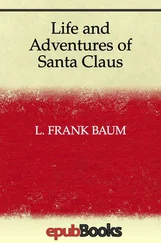Charles Dickens - Life And Adventures Of Martin Chuzzlewit
Здесь есть возможность читать онлайн «Charles Dickens - Life And Adventures Of Martin Chuzzlewit» весь текст электронной книги совершенно бесплатно (целиком полную версию без сокращений). В некоторых случаях можно слушать аудио, скачать через торрент в формате fb2 и присутствует краткое содержание. Жанр: Классическая проза, на английском языке. Описание произведения, (предисловие) а так же отзывы посетителей доступны на портале библиотеки ЛибКат.
- Название:Life And Adventures Of Martin Chuzzlewit
- Автор:
- Жанр:
- Год:неизвестен
- ISBN:нет данных
- Рейтинг книги:5 / 5. Голосов: 1
-
Избранное:Добавить в избранное
- Отзывы:
-
Ваша оценка:
- 100
- 1
- 2
- 3
- 4
- 5
Life And Adventures Of Martin Chuzzlewit: краткое содержание, описание и аннотация
Предлагаем к чтению аннотацию, описание, краткое содержание или предисловие (зависит от того, что написал сам автор книги «Life And Adventures Of Martin Chuzzlewit»). Если вы не нашли необходимую информацию о книге — напишите в комментариях, мы постараемся отыскать её.
Life And Adventures Of Martin Chuzzlewit — читать онлайн бесплатно полную книгу (весь текст) целиком
Ниже представлен текст книги, разбитый по страницам. Система сохранения места последней прочитанной страницы, позволяет с удобством читать онлайн бесплатно книгу «Life And Adventures Of Martin Chuzzlewit», без необходимости каждый раз заново искать на чём Вы остановились. Поставьте закладку, и сможете в любой момент перейти на страницу, на которой закончили чтение.
Интервал:
Закладка:
And it cannot be denied that, when he had made up his mind to even this extent, he felt an unaccustomed sense of freedom—a vague and indistinct impression of holiday-making—which was very luxurious. He had his moments of depression and anxiety, and they were, with good reason, pretty numerous; but still, it was wonderfully pleasant to reflect that he was his own master, and could plan and scheme for himself. It was startling, thrilling, vast, difficult to understand; it was a stupendous truth, teeming with responsibility and self-distrust; but in spite of all his cares, it gave a curious relish to the viands at the Inn, and interposed a dreamy haze between him and his prospects, in which they sometimes showed to magical advantage.
In this unsettled state of mind, Tom went once more to bed in the low four-poster, to the same immovable surprise of the effigies of the former landlord and the fat ox; and in this condition, passed the whole of the succeeding day. When the coach came round at last with “London” blazoned in letters of gold upon the boot, it gave Tom such a turn, that he was half disposed to run away. But he didn't do it; for he took his seat upon the box instead, and looking down upon the four greys, felt as if he were another grey himself, or, at all events, a part of the turn-out; and was quite confused by the novelty and splendour of his situation.
And really it might have confused a less modest man than Tom to find himself sitting next that coachman; for of all the swells that ever flourished a whip professionally, he might have been elected emperor. He didn't handle his gloves like another man, but put them on—even when he was standing on the pavement, quite detached from the coach—as if the four greys were, somehow or other, at the ends of the fingers. It was the same with his hat. He did things with his hat, which nothing but an unlimited knowledge of horses and the wildest freedom of the road, could ever have made him perfect in. Valuable little parcels were brought to him with particular instructions, and he pitched them into this hat, and stuck it on again; as if the laws of gravity did not admit of such an event as its being knocked off or blown off, and nothing like an accident could befall it. The guard, too! Seventy breezy miles a day were written in his very whiskers. His manners were a canter; his conversation a round trot. He was a fast coach upon a down-hill turnpike road; he was all pace. A waggon couldn't have moved slowly, with that guard and his key-bugle on the top of it.
These were all foreshadowings of London, Tom thought, as he sat upon the box, and looked about him. Such a coachman, and such a guard, never could have existed between Salisbury and any other place. The coach was none of your steady-going, yokel coaches, but a swaggering, rakish, dissipated London coach; up all night, and lying by all day, and leading a devil of a life. It cared no more for Salisbury than if it had been a hamlet. It rattled noisily through the best streets, defied the Cathedral, took the worst corners sharpest, went cutting in everywhere, making everything get out of its way; and spun along the open country-road, blowing a lively defiance out of its key-bugle, as its last glad parting legacy.
It was a charming evening. Mild and bright. And even with the weight upon his mind which arose out of the immensity and uncertainty of London, Tom could not resist the captivating sense of rapid motion through the pleasant air. The four greys skimmed along, as if they liked it quite as well as Tom did; the bugle was in as high spirits as the greys; the coachman chimed in sometimes with his voice; the wheels hummed cheerfully in unison; the brass work on the harness was an orchestra of little bells; and thus, as they went clinking, jingling, rattling smoothly on, the whole concern, from the buckles of the leaders” coupling-reins to the handle of the hind boot, was one great instrument of music.
Yoho, past hedges, gates, and trees; past cottages and barns, and people going home from work. Yoho, past donkey-chaises, drawn aside into the ditch, and empty carts with rampant horses, whipped up at a bound upon the little watercourse, and held by struggling carters close to the five-barred gate, until the coach had passed the narrow turning in the road. Yoho, by churches dropped down by themselves in quiet nooks, with rustic burial-grounds about them, where the graves are green, and daisies sleep—for it is evening—on the bosoms of the dead. Yoho, past streams, in which the cattle cool their feet, and where the rushes grow; past paddock-fences, farms, and rick-yards; past last year's stacks, cut, slice by slice, away, and showing, in the waning light, like ruined gables, old and brown. Yoho, down the pebbly dip, and through the merry water-splash and up at a canter to the level road again. Yoho! Yoho!
Was the box there, when they came up to the old finger-post? The box! Was Mrs Lupin herself? Had she turned out magnificently as a hostess should, in her own chaise-cart, and was she sitting in a mahogany chair, driving her own horse Dragon (who ought to have been called Dumpling), and looking lovely? Did the stage-coach pull up beside her, shaving her very wheel, and even while the guard helped her man up with the trunk, did he send the glad echoes of his bugle careering down the chimneys of the distant Pecksniff, as if the coach expressed its exultation in the rescue of Tom Pinch?
“This is kind indeed!” said Tom, bending down to shake hands with her. “I didn't mean to give you this trouble.”
“Trouble, Mr Pinch!” cried the hostess of the Dragon.
“Well! It's a pleasure to you, I know,” said Tom, squeezing her hand heartily. “Is there any news?”
The hostess shook her head.
“Say you saw me,” said Tom, “and that I was very bold and cheerful, and not a bit down-hearted; and that I entreated her to be the same, for all is certain to come right at last. Good-bye!”
“You'll write when you get settled, Mr Pinch?” said Mrs Lupin.
“When I get settled!” cried Tom, with an involuntary opening of his eyes. “Oh, yes, I'll write when I get settled. Perhaps I had better write before, because I may find that it takes a little time to settle myself; not having too much money, and having only one friend. I shall give your love to the friend, by the way. You were always great with Mr Westlock, you know. Good-bye!”
“Good-bye!” said Mrs Lupin, hastily producing a basket with a long bottle sticking out of it. “Take this. Good-bye!”
“Do you want me to carry it to London for you?” cried Tom. She was already turning the chaise-cart round.
“No, no,” said Mrs Lupin. “It's only a little something for refreshment on the road. Sit fast, Jack. Drive on, sir. All right! Good-bye!”
She was a quarter of a mile off, before Tom collected himself; and then he was waving his hand lustily; and so was she.
“And that's the last of the old finger-post,” thought Tom, straining his eyes, “where I have so often stood to see this very coach go by, and where I have parted with so many companions! I used to compare this coach to some great monster that appeared at certain times to bear my friends away into the world. And now it's bearing me away, to seek my fortune, Heaven knows where and how!”
It made Tom melancholy to picture himself walking up the lane and back to Pecksniff's as of old; and being melancholy, he looked downwards at the basket on his knee, which he had for the moment forgotten.
“She is the kindest and most considerate creature in the world,” thought Tom. “Now I KNOW that she particularly told that man of hers not to look at me, on purpose to prevent my throwing him a shilling! I had it ready for him all the time, and he never once looked towards me; whereas that man naturally, (for I know him very well,) would have done nothing but grin and stare. Upon my word, the kindness of people perfectly melts me.”
Читать дальшеИнтервал:
Закладка:
Похожие книги на «Life And Adventures Of Martin Chuzzlewit»
Представляем Вашему вниманию похожие книги на «Life And Adventures Of Martin Chuzzlewit» списком для выбора. Мы отобрали схожую по названию и смыслу литературу в надежде предоставить читателям больше вариантов отыскать новые, интересные, ещё непрочитанные произведения.
Обсуждение, отзывы о книге «Life And Adventures Of Martin Chuzzlewit» и просто собственные мнения читателей. Оставьте ваши комментарии, напишите, что Вы думаете о произведении, его смысле или главных героях. Укажите что конкретно понравилось, а что нет, и почему Вы так считаете.









